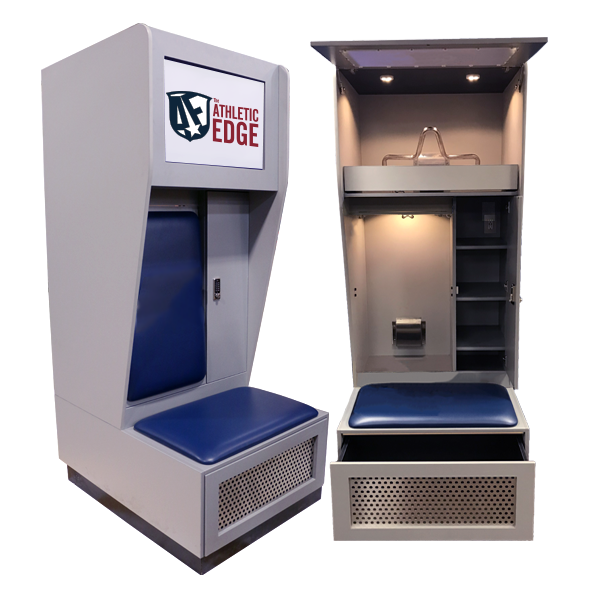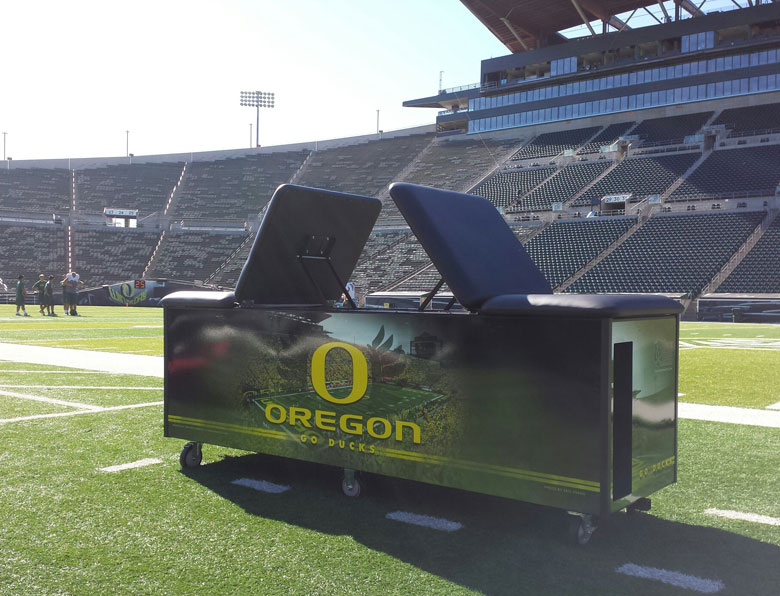A Deeper look Into The Athletic Edge's Wood/Laminate Products
Every athletic training room project has a unique budget and specific needs. The Athletic Edge can work with these specific needs because we offer products made from a variety of materials and price points.
The Athletic Edge's wood/laminate products are constructed of paneled material with decorative overlays on the outside faces and edges of the panels. The material primarily consists of ¾” thick panels with several different types of overlay and core panel materials that fall on different levels of the cost spectrum.
Above: Finished panel laminate with different colors of decorative overlays.
Our paneled materials have two main categories: real wood veneers and synthetic laminate products.
Below is a diagram of the internal construction of a typical laminated panel product.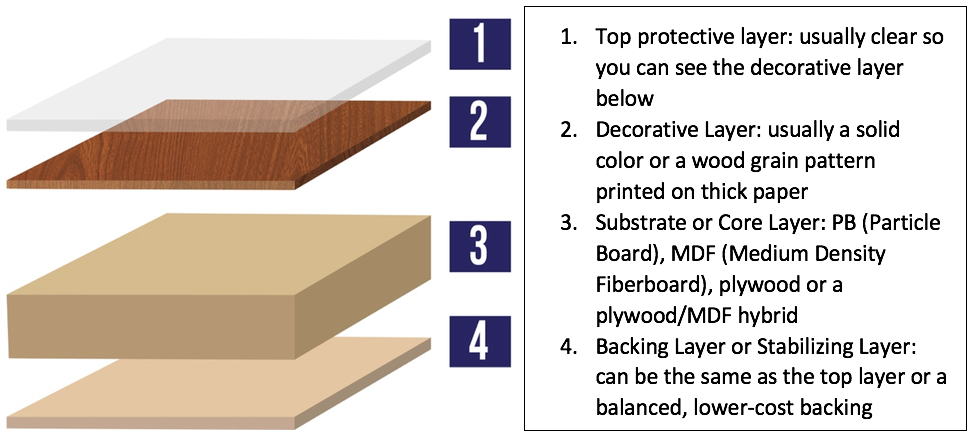
Core Material Choices
We use 4 primary options for core material:
A. Particle Board (PB) – This is the lowest cost solution for core material. PB is a blend of natural wood fiber (coarse sawdust) mixed with adhesive and pressed tightly to form a panel.
B. Medium Density Fiberboard (MDF) - MDF is an engineered wood composite that is similar to particle board, but is much denser and stronger than particle board. It uses more ‘glue’ (adhesives and binders) and finer, more controlled size of wood particles. It holds screws better and it’s more dimensionally stable than PB.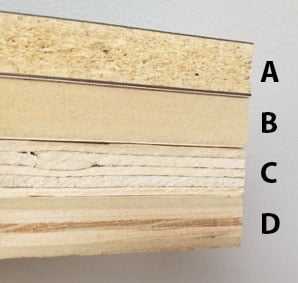
C. Plywood – True plywood is made of layers or bands of thinly sliced wood glued together to form a thick panel. Typically, a plywood core will alternate the grain direction of each layer of wood. This yields the best strength and minimizes warp that is common to natural wood products.
D. Another core material we use is a hybrid product that uses plywood and MDF combined. This material is called Classic Core or Armor Core, and employs MDF cross bands within the wood layers. This our standard core material for all hardwood veneer products.
Cost vs. Durability Factors
There are several factors we consider when choosing the construction materials for our products. Two of the most important factors for material selection are initial cost and long-term durability.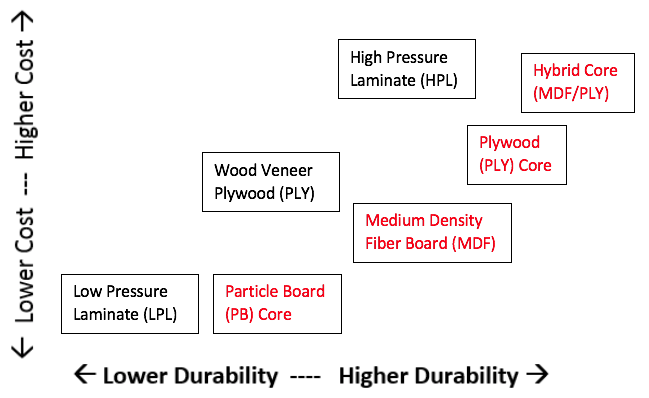
Generally, our lowest cost materials use Low Pressure Laminates (LPL) with a Particle Board Core. These are also the lowest durability materials and will not withstand as much wear and tear as other material before the quality is degraded. The particle board core material is also not very dense. Furthermore, it will not retain screws as well as more dense materials, such as Medium Density Fiber Board (MDF).

Generally, our highest cost materials are High Pressure Laminates (HPL) with a hybrid core. The protective and decorative layers of HPL products are much thicker than LPL products. The hybrid core material is denser and more dimensionally stable that other core materials. These materials will provide the longest lasting and most durable products.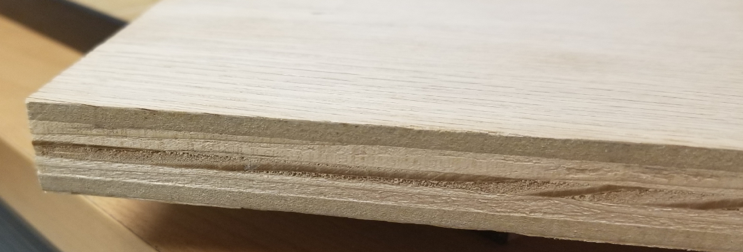
Above: Hardwood veneer product with a thin layer of real wood on the outside surface.
Water/Moisture
Natural wood fibers are susceptible to water damage and discoloration. All of our core materials are susceptible to water damage and should not be used in wet applications. For damp or moist environments, some treatments are available that can be added to the core material during manufacturing that will hinder or slow water damage.
The quality of our products is very important to us, which is why we have done extensive research to find the best materials for our customers that meet specific needs and budgets. When working with you, we will be sure to find the right products that are the best fit for your project.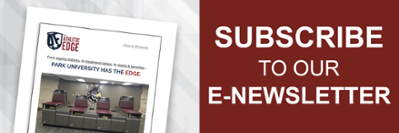
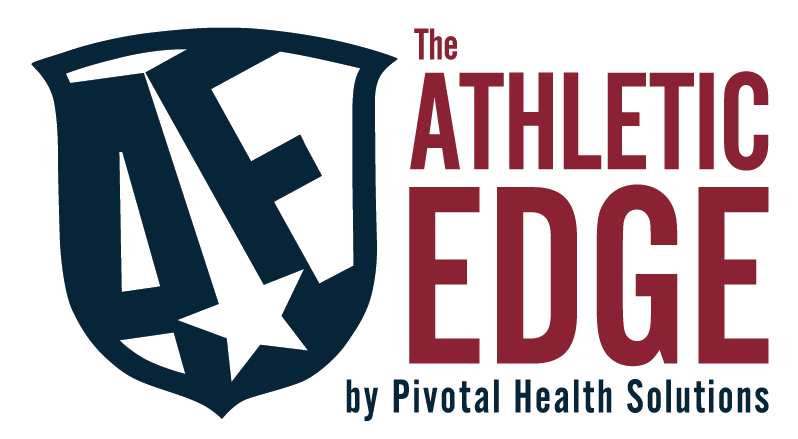

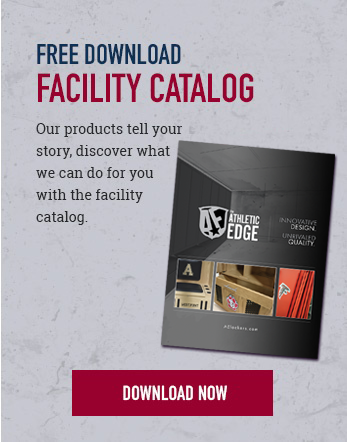
.webp)

